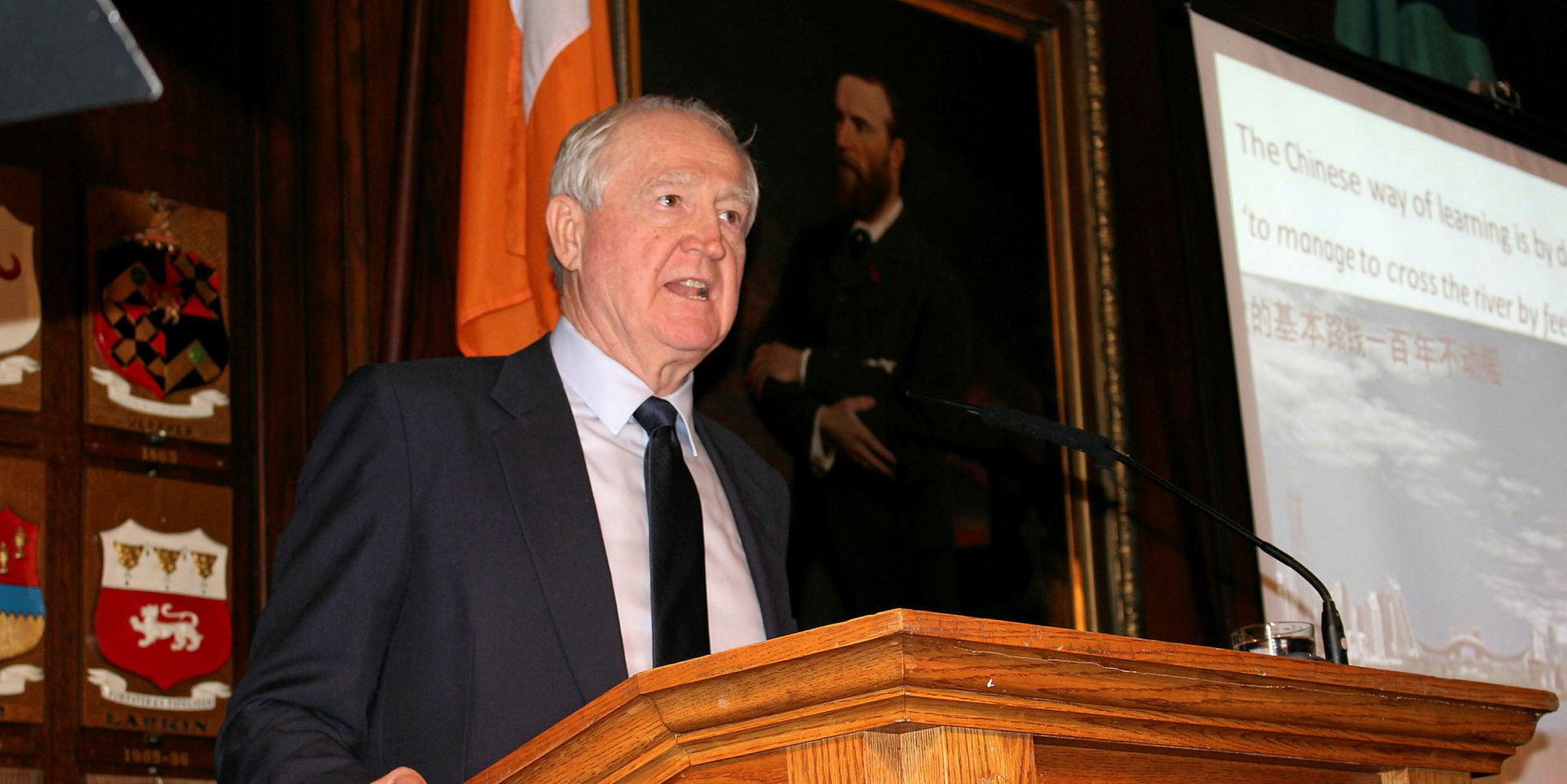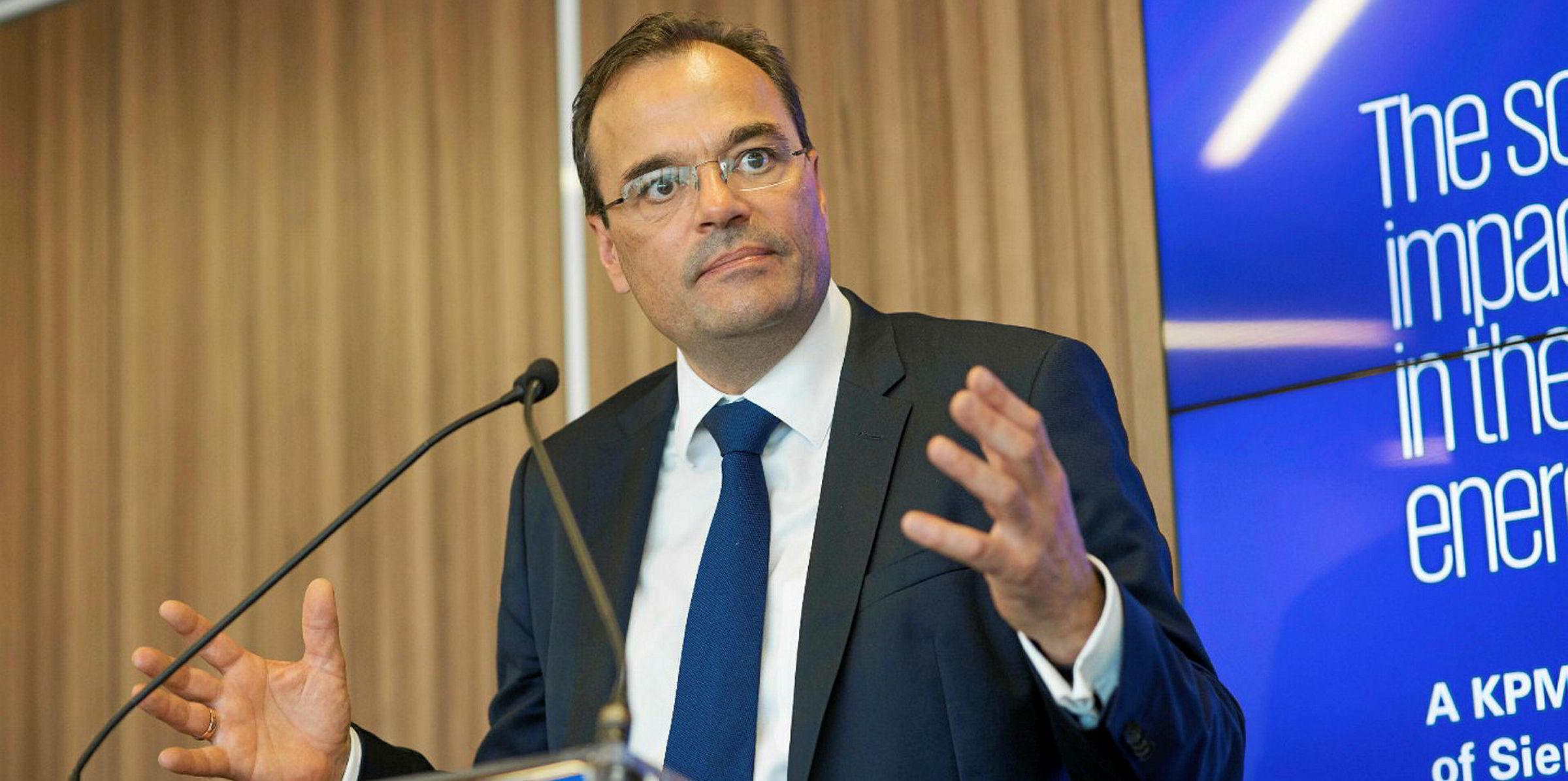The wind industry is “on its knees” after seeing its profitability wiped out by falling prices, and in no fit state to do what’s needed to fight climate change, claimed renewable energy pioneer Eddie O’Connor.
O’Connor, chairman of global wind and solar developer Mainstream Renewable Power (MRP), told an industry conference that the price declines seen in recent years, combined with the continuing freedom of fossil fuels to operate without penalties for their emissions, means “there’s an existential risk out there until we get some price back into this market, until we get paid for the products we sell at a decent price that includes some price for pollution”.
“Prices have gone too low,” said O’Connor, the founder and former chief executive of MRP. “The whole of the industry right now is on its knees, the whole of the supply industry. The average profitability in the wind turbine industry is about zero,” he told Offshore & Floating Wind Europe in London.
O’Connor – who built Ireland-based MRP into a global force in renewables development – claimed the sector would struggle to achieve its potential for as long as its core profitability was below the oil and gas sector, which continues to look like a profitable bet to investors.
“The industry has to be more profitable than the alternatives, and currently we’re not,” he said.
“We have reduced the number of turbine suppliers in the west from 15 to four in the last 10 years. Two of those are absolutely without profit, two of them are barely profitable, and a lot less profitable than the oil industry.”
And O’Connor said he feared the project development sector had returned to a position similar to that seen around 2000, when bids were so low that “nothing got built. We’ve arrived back at that now [with what] we’re seeing in India, and Mexico and possibly Brazil”.
The Mainstream founder warned that the market situation is hobbling wind’s ability to meet the enormous build-out needed to address climate change – a level that he said was far beyond current projections of progress.
“You have to look at how are you going to build a sustainable industry before you can decarbonise.
“You’re looking at an industry that can transform the whole electricity sector, but because the superstructure isn’t right, because the profitability isn’t right, because we don’t pay for pollution, then we’re in real trouble.
“We’re not doing anything like we need to do if we’re going save this planet for succeeding generations.”


